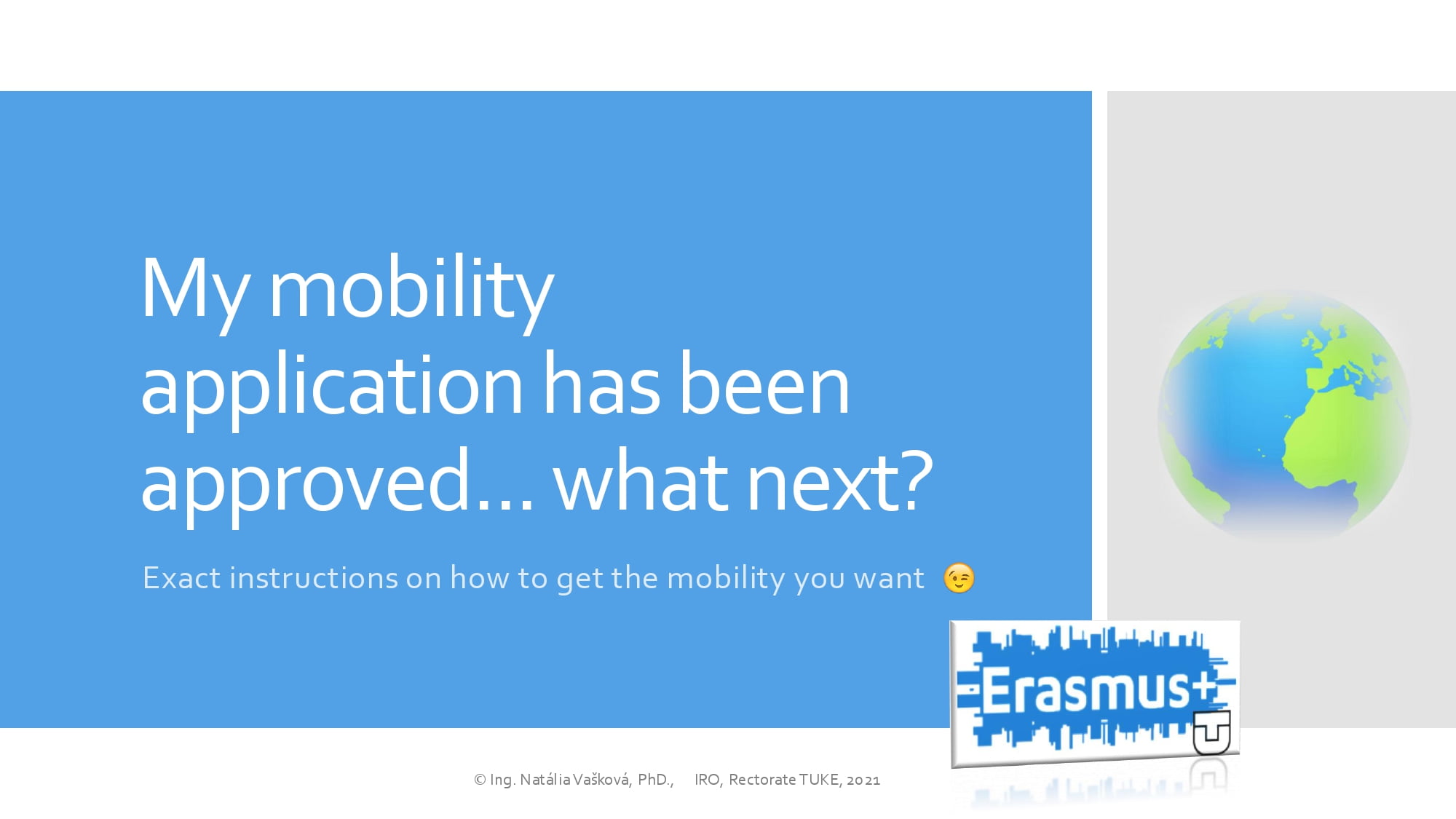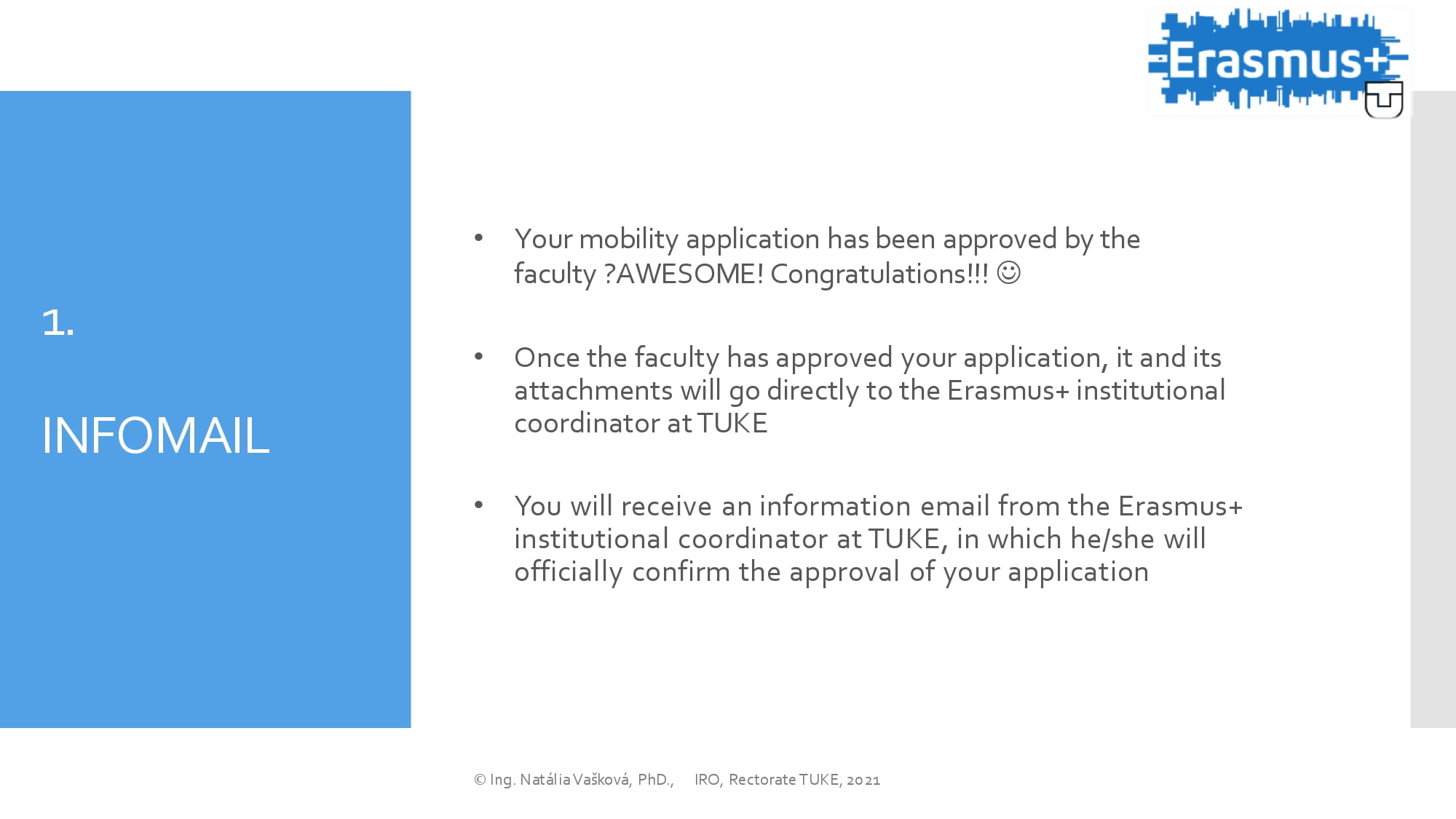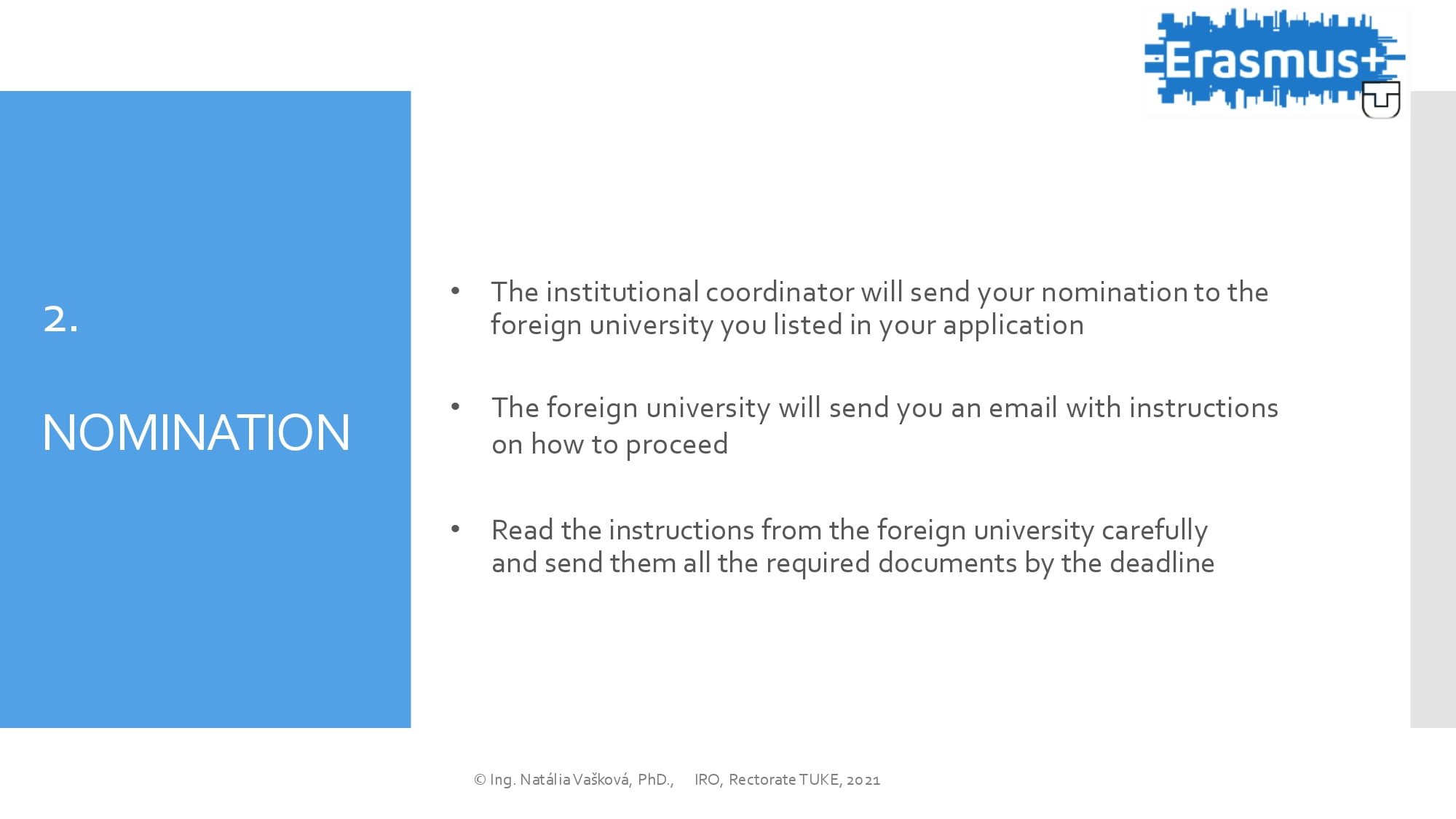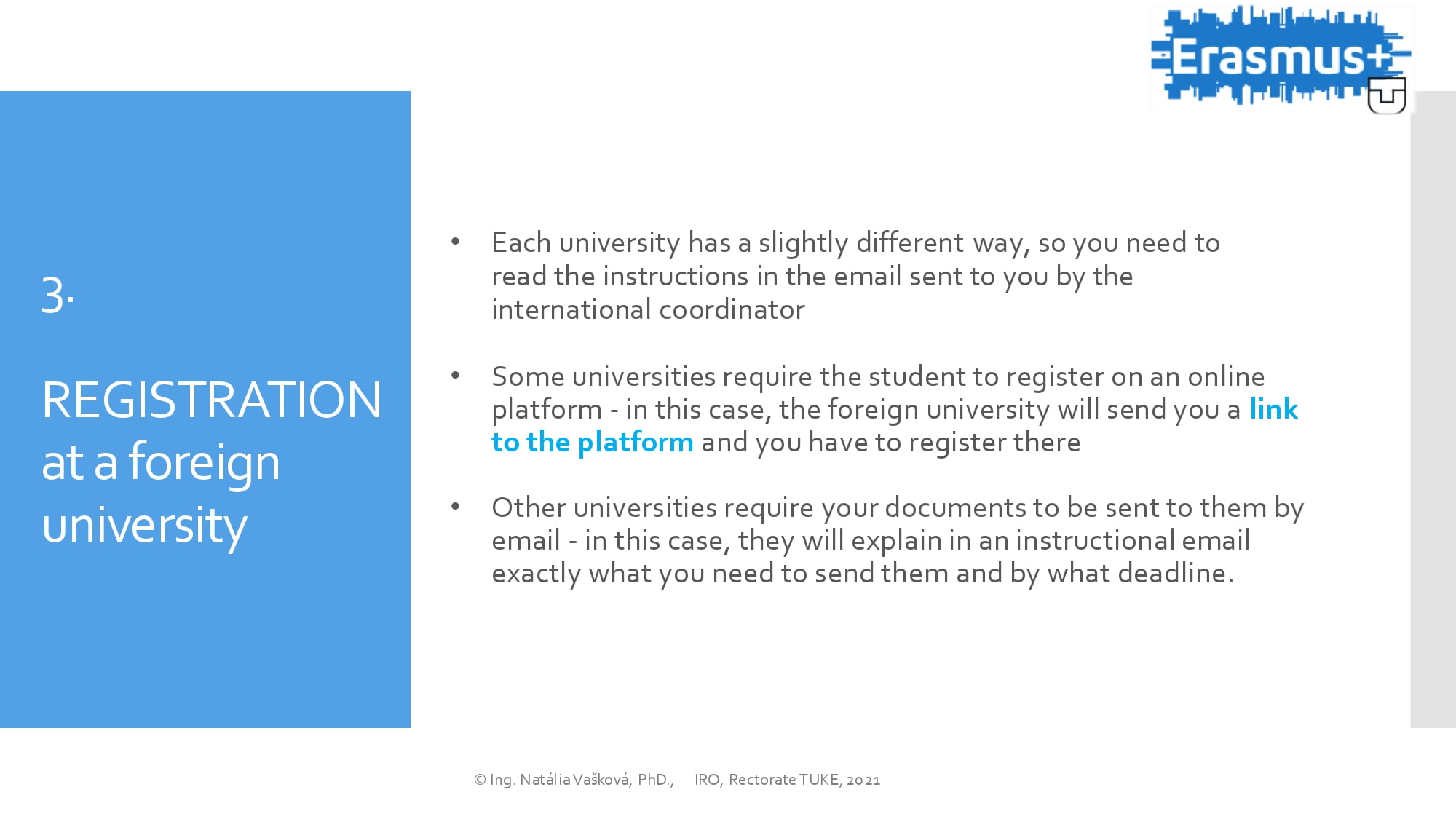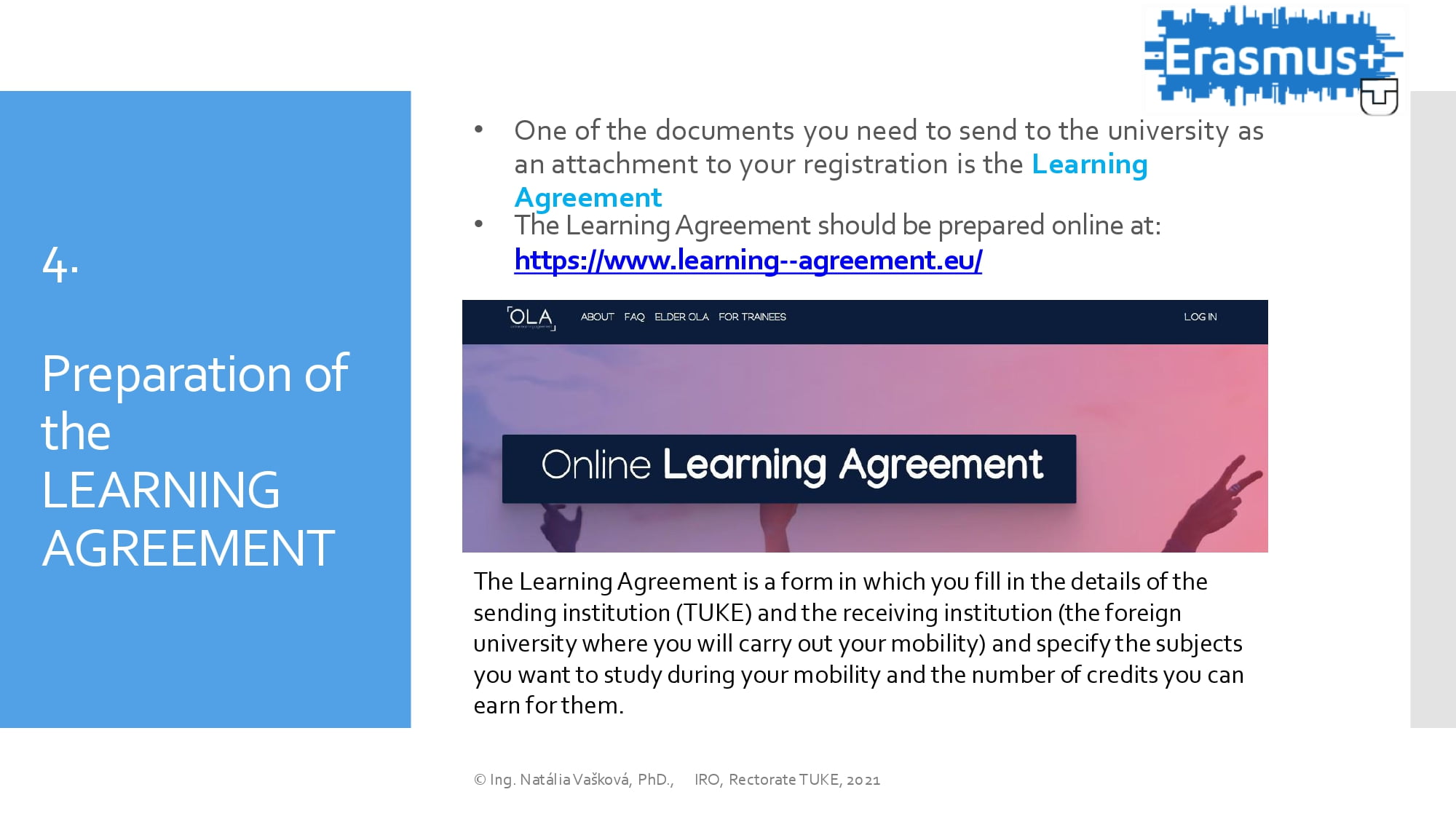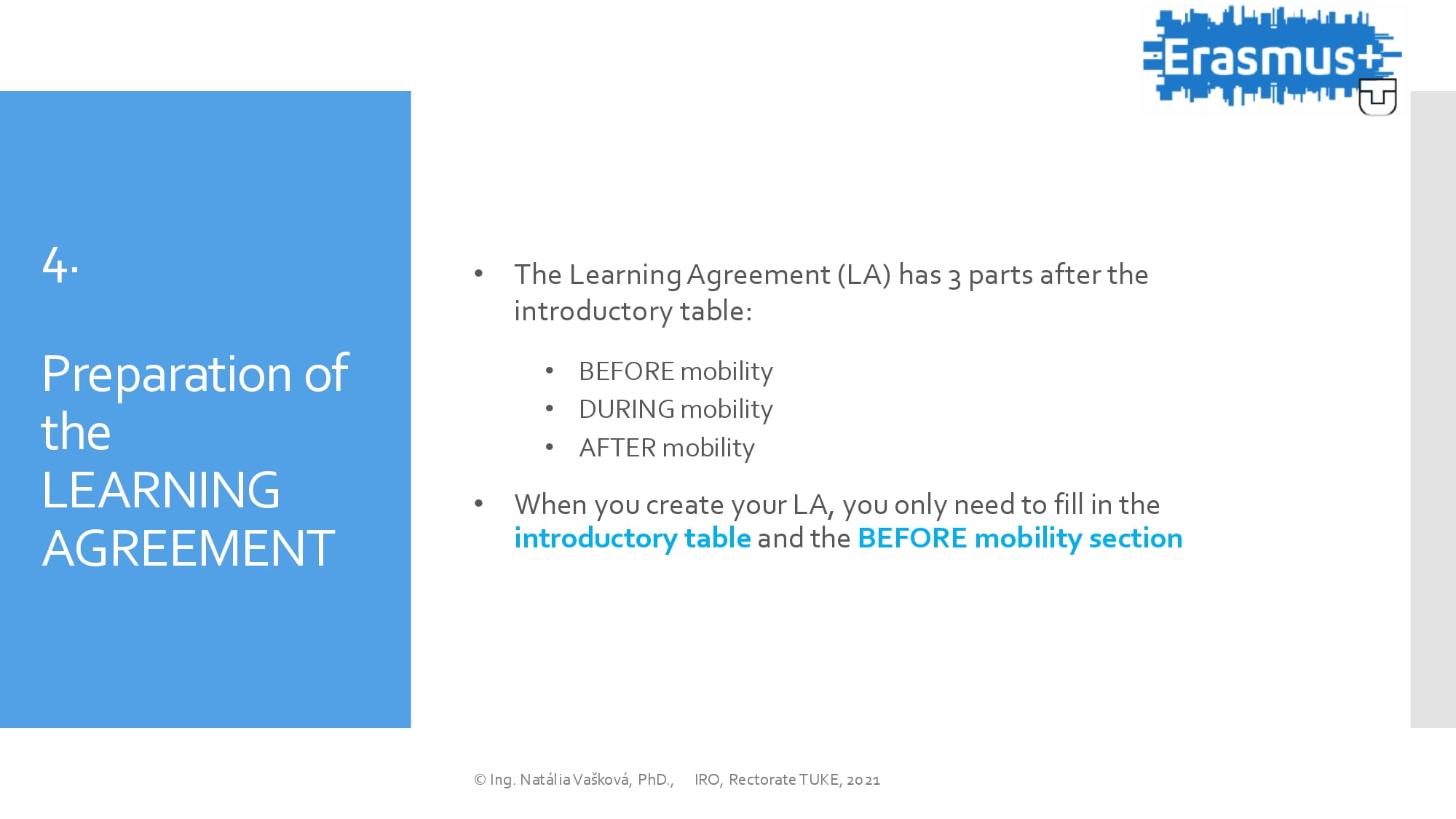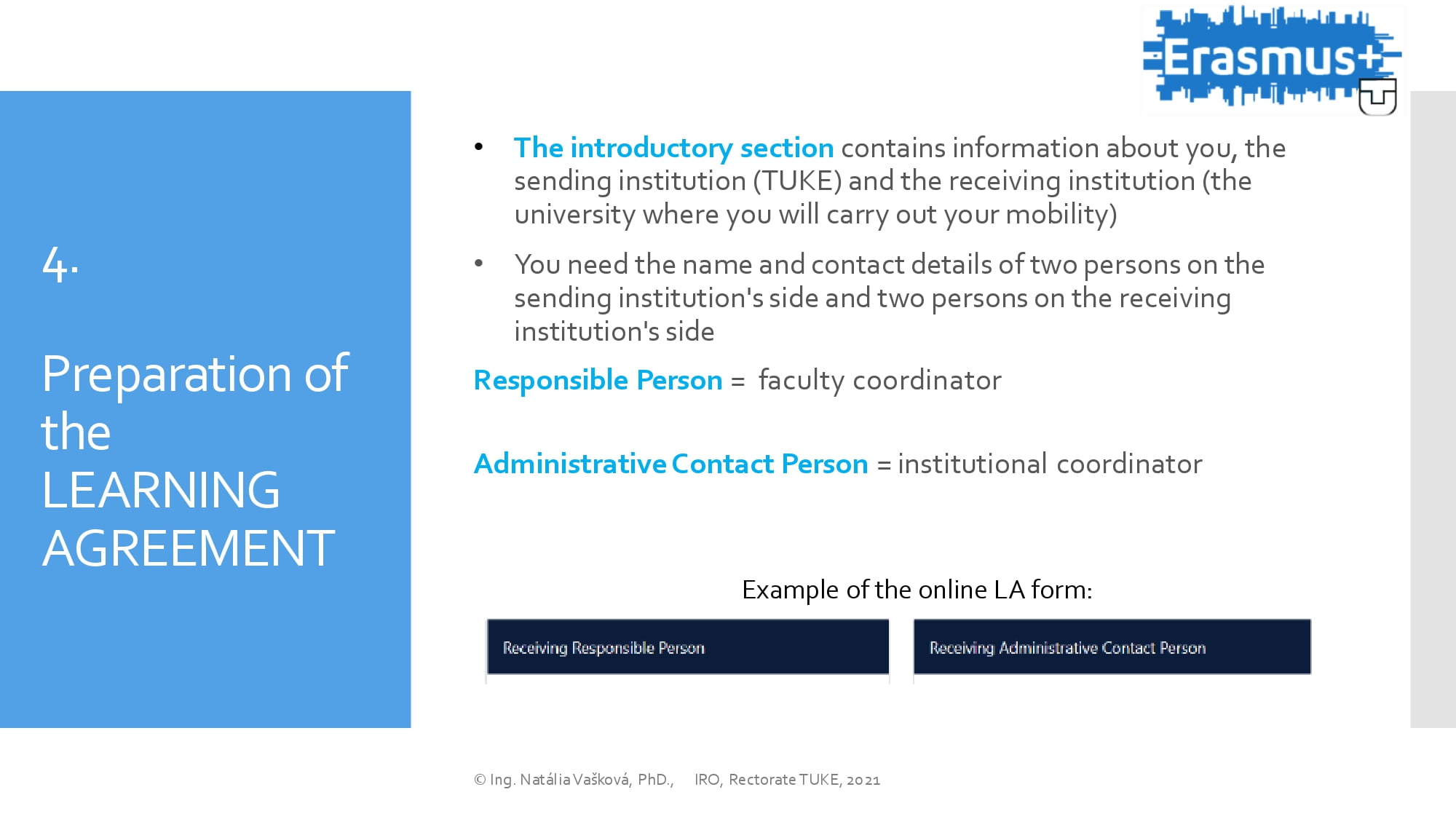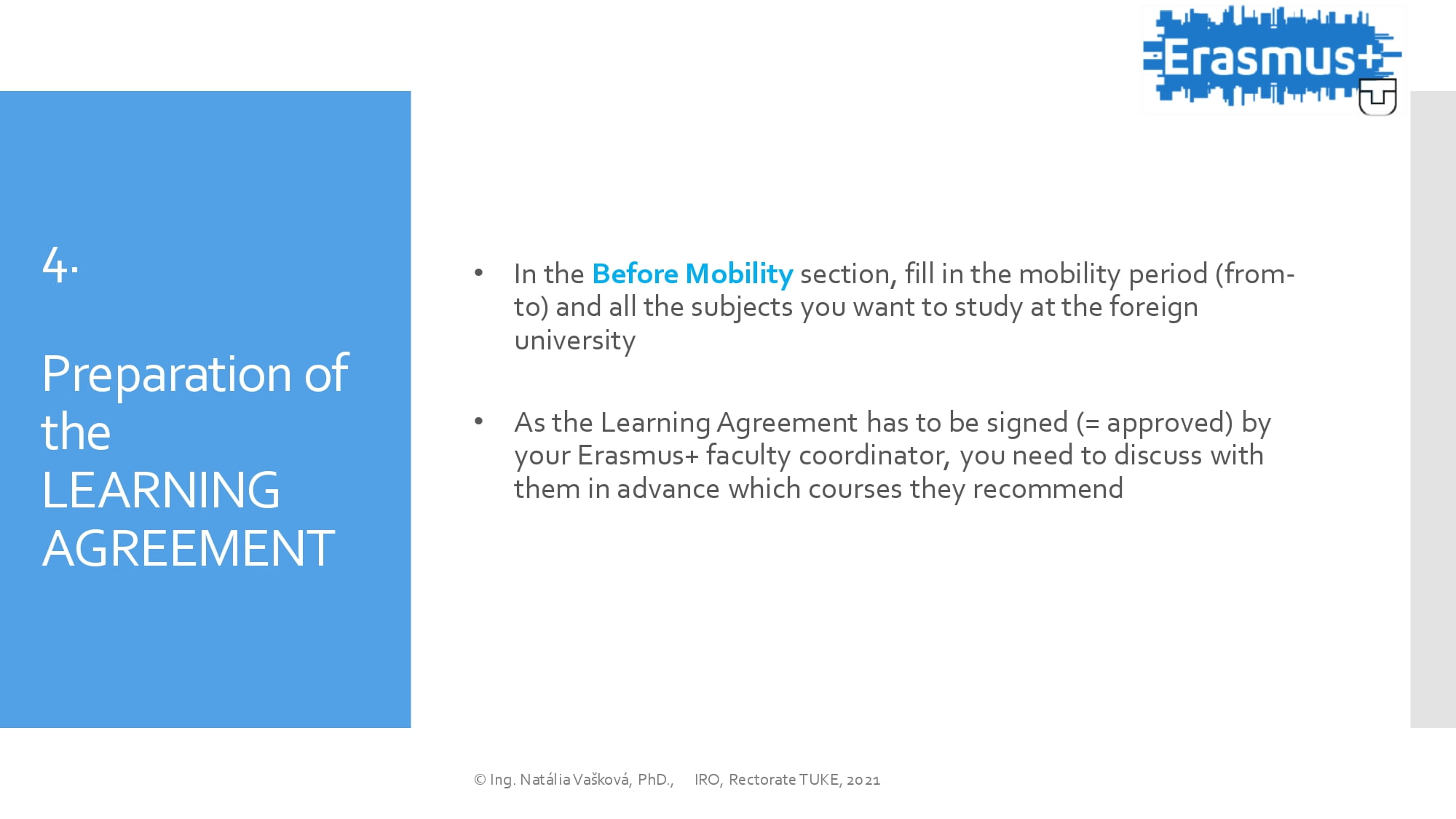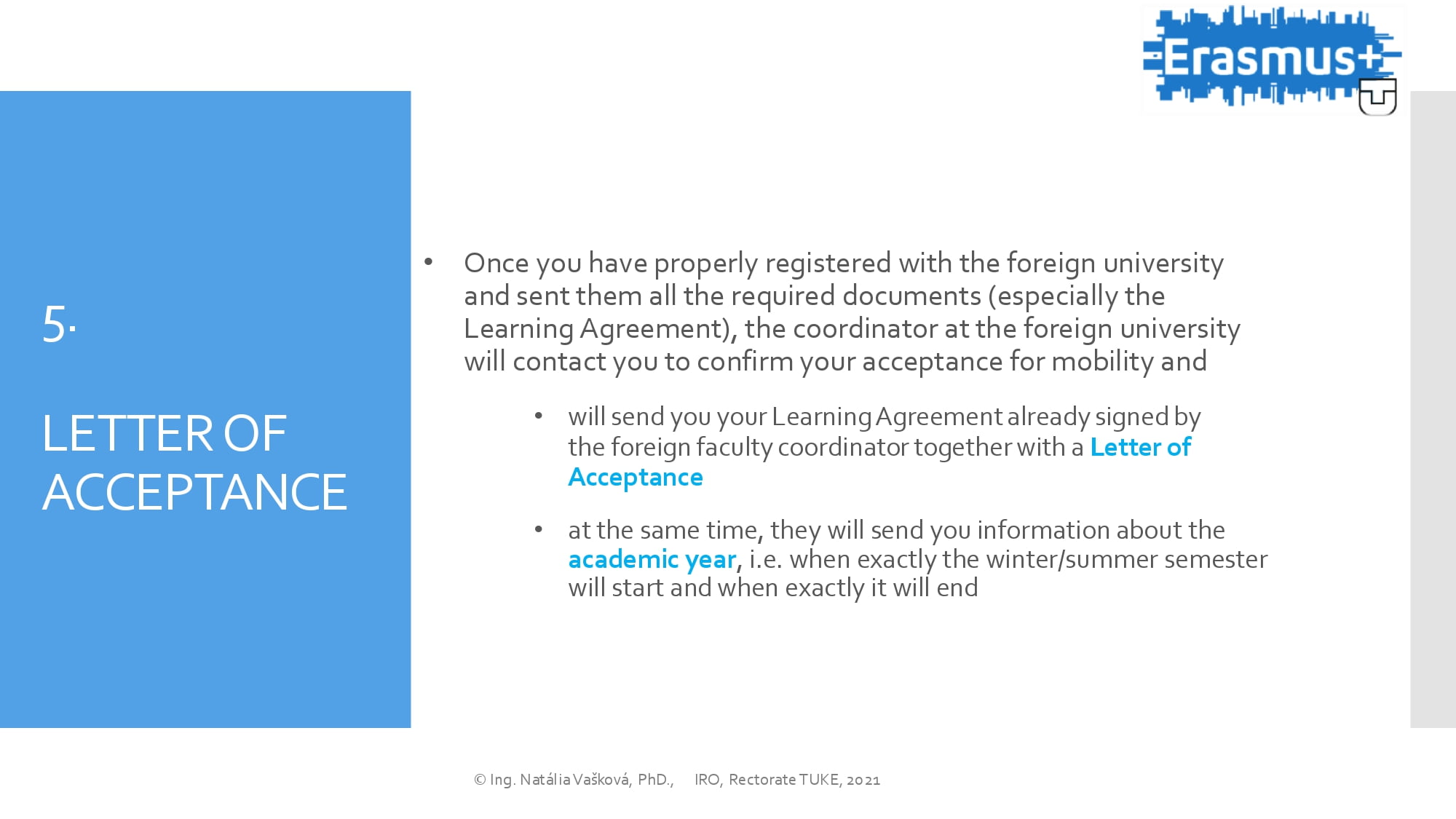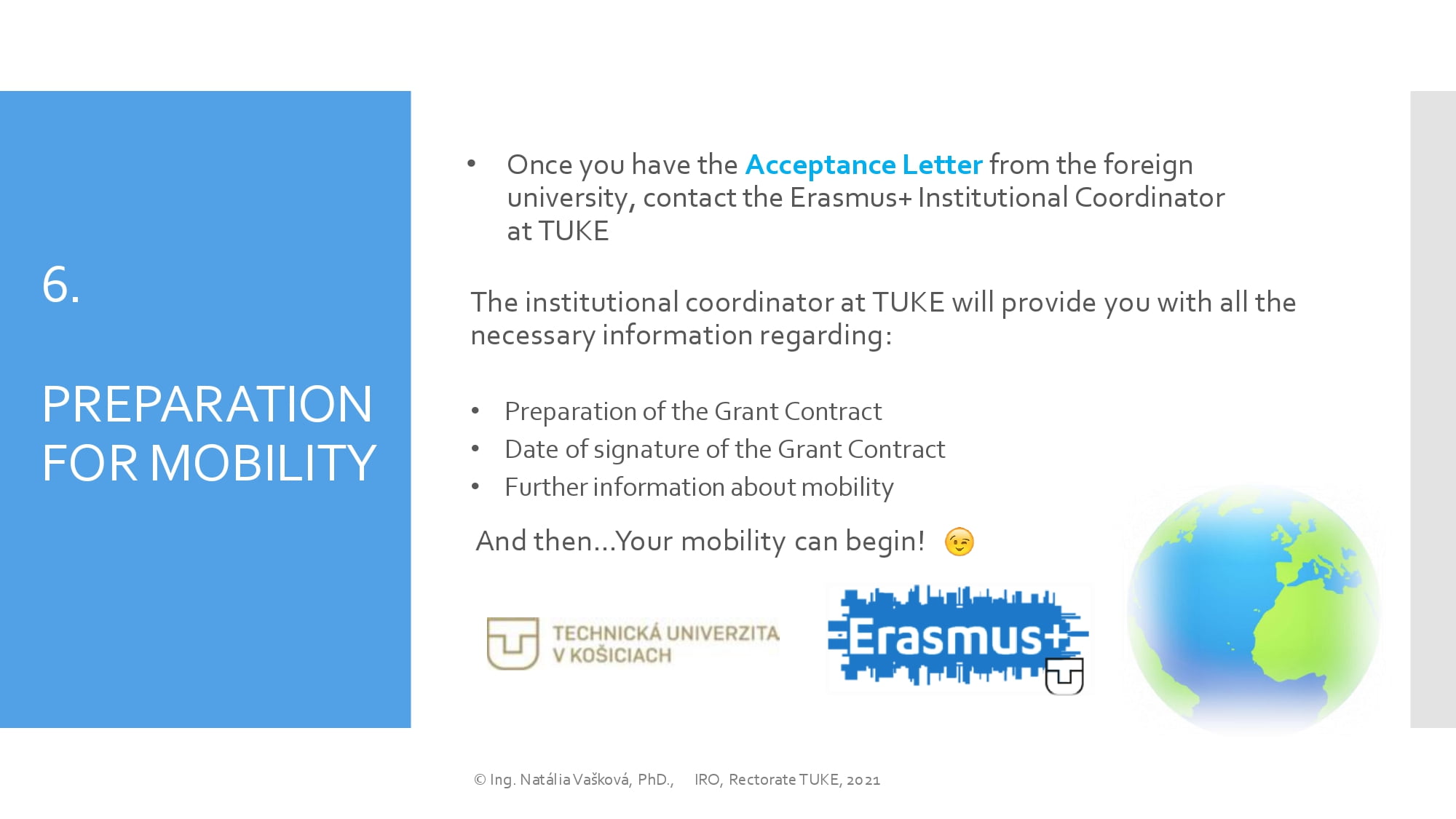Before mobility
Information for students travelling to study
For EU and EEA countries and the world
- The student communicates with the partner school and follows their instructions.
- In the course of preparation for study abroad, the student, in cooperation with the Faculty Coordinator and in consultation with the Vice Dean for Education, prepares a Learning agreement, which is then sent to the partner school abroad for approval and signature. It specifies the student’s study programme at the receiving institution – a list of courses that the student will take during his/her stay abroad, as well as a list of courses that will be recognised at his/her TUKE faculty upon his/her return.
We recommend paying special attention to this agreement to avoid misunderstandings – when choosing courses at the partner school, it is important to make sure that the student chooses only the courses that are taught in the relevant semester at the faculty with which the agreement is concluded. We also recommend that the faculties prepare the Agreement in close cooperation with the heads of departments, with the course supervisors, as well as with the teachers who are involved in the teaching of the seconded student.
- The student will arrange commercial insurance for medical expenses abroad – the policy must be valid for the duration of the placement (including travel there and back) and the cover must cover all days of the placement and travel there and back.
- The student will sign the Erasmus+ financial support contract as instructed by the TUKE coordinator.
- After signing the Erasmus+ Contract, the student is obliged to contact the Study Department of his/her TUKE faculty and inform them about his/her departure for mobility.
Information for students travelling on traineeships
For EU and EEA countries only
- The student communicates with the partner school and follows their instructions.
- In the course of the preparation for the traineeship abroad, the student prepares a Learning agreement for traineeship, which is then sent to the partner institution for approval and signature. It will indicate the student’s programme at the host institution – the procedure for completing this document will be explained at the information session.
- The student will apply for a European Health Insurance Card which will be valid for the duration of the placement.
- The student will take out commercial insurance for medical expenses abroad – the policy must be valid for the whole duration of the stay (including travel there and back) and the cover must cover all days of the stay and travel there and back.
- The student will sign the Erasmus+ financial support contract as instructed by the TUKE coordinator.

